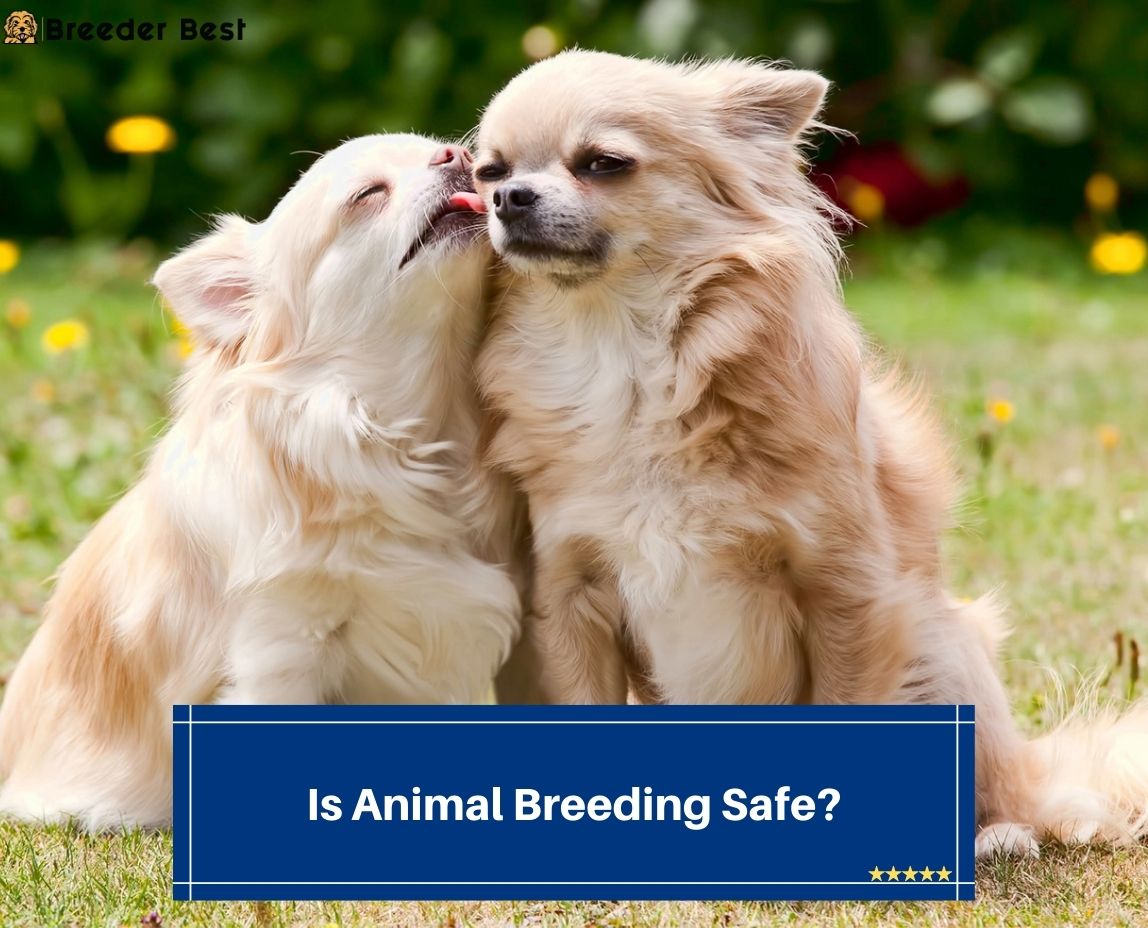Animal breeding is very popular, especially for dogs. Other domesticated pets, such as guinea pigs, bunnies, and cats, are also subject to breeding. Farmers even breed livestock to keep their farms sustainable.
Many animal rights advocates have begun to protest such practices. There are several reasons behind their disapproval, and we will discuss the disadvantages of breeding different animals.
Is Animal Breeding Safe For Dogs?
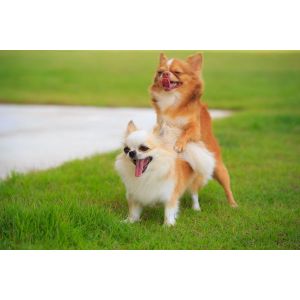
However, many breeders treat their animals respectfully and know how to breed them safely. Read on to learn the safety concerns for breeding different animals.
Recently, dog breeding has faced scrutiny. Many people have argued that breeding is unnecessary and unsafe. Is it true?
Other articles you would like: Are Animal Breeders Bad? and Animal Breeding For Disease Resistance.
Disadvantages Of Dog Breeding
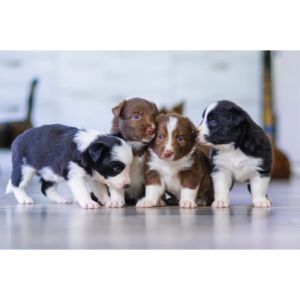
Many animal rights advocates dislike breeding due to the overpopulation problem. Every year, about 3.9 million dogs are brought to animal shelters. Even if breeders are careful and provide a safe environment for their dogs, they are taking homes away from needy dogs.
Additionally, nine of every ten dogs born will never have a permanent home. Thus, many dogs that were bred will become homeless. They may be taken into a safe environment when living with the breeder, but they may face unsafe conditions when running free or in a shelter.
Occasionally, animal shelters euthanize dogs who do not find homes. Dogs with significant health complications cannot receive the specialized care they require in shelters and may be put down. Other dogs may be euthanized once they grow old enough that they are unlikely to be adopted.
Breeders may also place their dogs at risk during the breeding process. Most breeders produce purebred dogs. When both of a puppy’s parents have the same genes, the puppy’s gene pool is limited. This often leads to genetic health defects.
Today, there is a growing desire for the tiniest puppies available. Unfortunately, most dogs are not naturally teacup-sized. To produce teacup puppies, breeders typically mate the runts of previous litters. Because runts are unusually small, they are also unhealthy and breed unhealthy puppies.
Beyond stunting the growth of puppies, breeders may dock puppies’ tails and crop their ears. The American Kennel Club created the standard for each breed, and the ‘ideal’ dog for certain breeds has cropped ears or docked tails. When breeders comply with these standards, they place puppies in unnecessary distress.
Puppy Mills
Puppy mills are large-scale breeding businesses. These commercial facilities mass-produce puppies as quickly as possible without regard for their well-being. Those who run puppy mills neglect the parent dogs.
The dogs receive no exercise or attention, and the females must reproduce so often that their health is compromised. While breeders may care for their dogs appropriately, puppy mills have received a reputation for abusing dogs and using them solely for profit.
When Is Dog Breeding Safe?
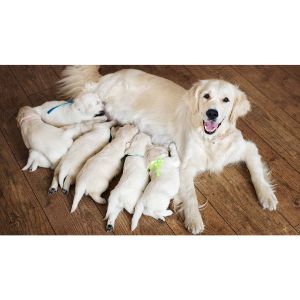
Some dog breeders specialize in crossbred dogs, the offspring of two dogs of different breeds. Unlike purebred puppies, crossbred puppies draw from a diverse gene pool and are less likely to inherit genetic diseases.
When breeders care for the dogs like their own pets, avoid docking tails or cropping ears, allow the dogs to grow as normal, and use crossbreeding techniques, the process is usually safe.
Is Animal Breeding Safe For Cats?
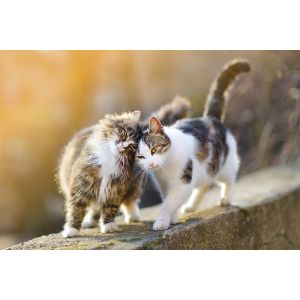
Every year, about 3.4 million cats are homeless in the United States. Shelters fill up quickly, resulting in the death of 2.7 million dogs and cats yearly. Just as animal rights advocates warn against purchasing dogs from a breeder, many recommend that people adopt cats rather than buy them.
Like dogs, cats are often bred to attain a favorable appearance. One form of unethical cat breeding is known as extreme breeding. In these cases, people purposely breed cats with physical deformations. For instance, cats with flat noses have become increasingly popular.
Extreme breeding can lead to misshapen heads, eyes, and noses. It can even distort the heart and immune system. Cats bred in this way may only live for three to five years.
When Is Cat Breeding Safe?
Cat breeders must follow standards created by the Cat Fanciers’ Association (CFA). One segment states that the breeder “will breed [they’re] cats with the intent of improving the breed and to produce healthy, happy kittens.”
The code also states that the breeder “will ensure [they’re] cats are kept in a healthy environment, and … will ensure they receive the proper veterinary care as needed.” Therefore, cat breeders who follow the code closely to produce healthy kittens raised in a healthy environment promote the safety of their animals.
Is Animal Breeding Safe For Guinea Pigs?
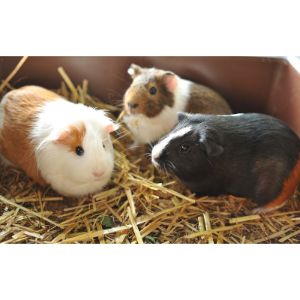
Breeding guinea pigs is riskier than breeding most other animals. When babies are born, they are already large and prepared to move. Thus, giving birth is very taxing on female guinea pigs. Pregnant guinea pigs may carry seven babies at once, causing the female guinea pig to double her weight during the pregnancy. This places a strain on her vital organs and complicates circulation.
Inexperienced guinea pig breeders often mate female guinea pigs when they are too young. In these cases, a Cesarean section is usually required. Even with the assistance of a vet, such procedures typically result in death.
Is Animal Breeding Safe For Farm Animals?
Farm animal breeding can be safe when done properly. Most breeders select the healthiest animals to breed, allowing them to pass down advantageous traits.
For example, they may breed cows resistant to a disease that has affected most of the herd. The calves will thrive despite the presence of the disease and will not require medication to counteract it. Thus, they will not be at risk of adverse effects from medication.
Additionally, breeders have discovered new ways to impregnate cows. Through artificial insemination, breeders can inject semen into cows. Another option is to transfer a healthy embryo to a surrogate. Both methods lower the risk of transmitting disease.
Is It Safe To Eat Farm Animals That Were Bred?
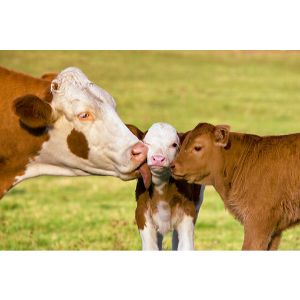
The goal of farm animal breeding is to pass down traits that will increase the productivity of a farm. When farmers choose which animals to breed, they can increase their chances of having larger, stronger, healthier offspring.
When the animals are more productive, farmers can produce more food for the growing population of people. Also, healthier animals require less medication, as previously discussed. Thus, people who eat these animals do not risk coming in contact with potentially harmful substances.
How To Breed Animals Safely
Beyond providing the proper care and environment for the animals, breeders must be aware of any diseases to which the animals are prone.
Breeders should collect data about their parent animals and offspring. Recording the adults’ traits can inform breeders’ decisions about which ones are best to breed. The healthiest animals should always be bred to produce the healthiest offspring.
Additionally, some animals are not compatible with others. Animals that do not share enough genes cannot mate safely. Therefore, breeders must research the compatibility of their animals before breeding. Breeders should also have easy access to veterinarians in emergencies. Even when the proper precautions are in place, the mother or baby may encounter certain risks.
Conclusion For Is Animal Breeding Safe
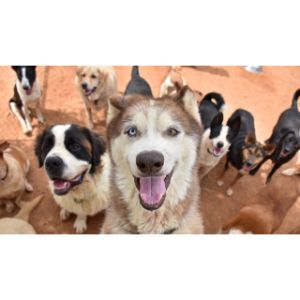
It is possible to safely breed dogs, cats, farm animals, and others. Many farm animals can benefit from selective breeding. Unfortunately, breeding guinea pigs can be much more dangerous than breeding other animals. Breeding animals such as cats and dogs do add to the overpopulation crisis, but this is not a direct safety issue.
Breeders are expected to provide safe, healthy environments for both parent animals and their offspring. You can find quality breeders if you research reviews of breeders and ask questions about their breeding methods. By purchasing animals from reputable breeders, you can support healthy environments for future generations.
You will also like:
For more information on “is animal breeding safe”, check out the video below:

